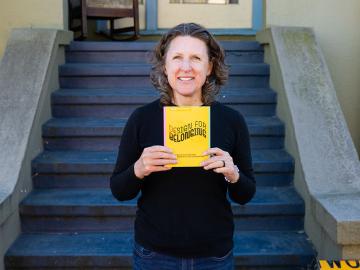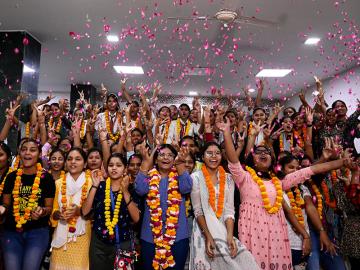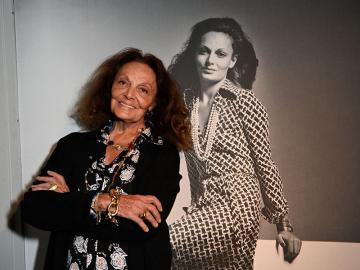A leader must learn to take bold decisions: Graeme Smith
Former South African captain and commissioner of the newly-minted SA20 league on how to manage crises and lead from the front
CENTURION, SOUTH AFRICA - FEBRUARY 12: Graeme Smith of South Africa leads his team from the field after day one of the First Test match between South Africa and Australia on February 12, 2014 in Centurion, South Africa.
Image: Morne de Klerk/Getty Images
Graeme Smith is no stranger to boarding sinking ships and steadying them. At 22, when he took over from Shaun Pollock as the captain of the South African cricket team, it was not only reeling from a shock exit from the 2003 World Cup that it hosted, but also the aftershocks of the match-fixing scandal involving former skipper Hansie Cronje. Smith, a left-handed opening batter and the country’s youngest captain, soon made his mark by scoring double centuries in his 11th and 12th Tests (his third and fourth as captain). By the time he retired from international cricket in 2014, he became the country’s most successful captain across formats and led South Africa to an unbeatable streak in away Tests between 2007 and 2013.
Q. You became the national skipper at 22. At the time, South African cricket was going through a crisis of faith and performance. How did you handhold the team through the crisis at such a young age?
If I look back now, I have a very different feeling about how daunting that situation was. At 22, I believed I was the right man for the job and didn’t realise how much was riding on my shoulders. Initially, a leadership role has got to be something that you want to do because there’s a lot of pressure and responsibility that comes with it.
At that time, the administrators were looking for new energy to build on after the match-fixing incident involving Hansie Cronje, and the loss in the 2003 World Cup, where we were hosts, and I was given the charge. Following Shaun [Pollock] as captain was always going to be challenging, and the first big stress point was the tour to England. A lot of people weren’t in favour of the decision [of having me as captain]. But, within the squad, I was lucky to have developed a relation with senior players. The areas that I needed to grow into were tactical decision-making and building the right type of environment to create consistent success. Those took some time. But one of the key things that worked for me was performance. I was fortunate I was able to lead from the front. I got two double-hundreds in the series against England. In the first 3-4 years of my leadership, when I was making mistakes and learning, I was able to perform and lead by example.
Q. You were the captain as well as the opening batter. How did you manage expectations on various fronts?
In the earlier years, I was challenged wherever I went. People would take me on and criticise me. It was just a way of life, being a young leader. I approached that situation with determination, almost like an I’m-going-to-show-you mindset, an urge to prove people wrong. You tend to build a protective layer around you because of that and come off as arrogant. Over time, as I grew into the job, built a squad of successful players, and was able to put my stamp on it, all these changed. That initial mindset isn’t sustainable, and, over the years, you have to build a routine of how you manage yourself, your stress levels, how you manage the team, what culture you want to build, how do you share the load with other players and so on.
Also read: How leaders can build resilience in teams
Q. Did you have a mentor when it came to leadership?
There were a few people within South African cricket that you try and reach out to. But I guess I could never build a relationship I could trust. At that time, Kepler [Wessels] was the only former South African captain outside the system, but he was in the media and our conversations never felt safe. Leadership can be a lonely place. I remember sitting down with [mental conditioning coach] Paddy Upton in 2007, for two or three months, at a time I was 3-4 years into leadership. We had lost the semifinals of the World Cup in the West Indies, and I really wanted to get to grips with the world I was living in—from politics to being a young captain. The work that I did with Paddy for those two-three months in understanding myself was key to being part of a hugely successful period of South African cricket, especially in the away Tests that included a series victory against England in 2008, its first since 1965.
Q. Cricket is a sport where several people with different characters and quirks come together to form a team. How do you fashion them into a cohesive, winning unit?
As a leader, you must identify talent. As a captain, you must know what type of players you have, how are you going to play the game, how can you be successful in all conditions, and then try and build a team that can execute. After that, it's about creating a value system of respecting each other. One thing I realised when I became the captain was that South African cricket has a lot of cultures, a lot of upbringings, and diverse backgrounds and we went and developed a culture within the squad incorporating all the differences. Former English cricketer Jeremy Snape came along as a psychologist and did a lot of work on our culture. That's when the team started to understand the different backgrounds the players come from, given that South Africa is a diverse country with a lot of complex issues. It helped us massively in building a cohesive unit and went on to win a big away bilateral series in England and Australia.
Q. Being an international athlete is also about stepping out of your comfort zone. How would you manoeuvre such situations?
In my early years as South African captain, everything was a pressure point. You are 22 years old and in charge of turning South African cricket around. It's impossible to have all the answers. Back then, performance and leading from the front worked for me, even though I couldn't build a team culture back then. But when you talk about pushing out of my comfort zone, I'll say learning to speak in public. I was a shy guy growing up. Speaking at breakfasts, huge functions, speaking to cameras in front of the world and having the right answers—these have been consistent pressure points for me. To overcome that, I've read a lot of leadership books, read a lot about success and then tried to figure out how I could take those lessons and bring them into the context of the South African team and make them work. Sometimes your career exposes you to a path and changes your personality. That happened to me—from being a shy kid to learning to be a public figure and growing up in the public eye.
Q. One of the most definitive features of your leadership—both as a captain and as an administrator—is handling crises. What are the key strategies to manage crises?
You've got to be careful of being super reactive. You've got to take an opportunity to consider, you've got to think. Where a lot of leaders get stuck is the ability to make big, bold decisions. As a leader, you will have a lot of information flowing your way, and you've got to sift through that and figure what's the right path. Being calm and having clarity of thought is important, as is surrounding yourself with the right people. My ability to connect with people and get them working in the right direction has helped me throughout.
The captain-coach relationship is key in sharing the load, as I found working alongside Gary Kirsten or Mickey Arthur, for example. A lot of my work would happen on strategies in the build-up to games, spending more time with players, and the coach would be the more public figure around the big team talks and so on, and as the game would come closer, I would step up as the captain.
Also read: How institutions can regain public trust
Q. You were the director of cricket for Cricket South Africa (CSA) and now the commissioner of the newly-minted CSA T20 league. How is leading South African cricket as an administrator different from leading it as a captain?
When I got involved with Cricket South Africa (CSA) it was extremely tough. You want to get involved to make a difference and make a change. I found that difficult with the challenges at the administration level. People were being fired, and there was a lot of political game-playing going on within the environment. And everywhere you went to shift things, there were a lot of roadblocks. It's different with the SA20 league where I'm the commissioner—we've started the product slightly outside the federation. We've been able to get incredible partners. And my ultimate goal is to take cricket forward in South Africa. A huge part of being a leader is your ability to make decisions and take an organisation forward. I feel we are in the right place now to make a big change.
Q. What do you expect the league to do for South African cricket?
For SA20, our goal is to improve South African cricket. We would love to see South African cricket back on the map, both commercially and cricket-wise. It's unfortunate how we've performed on the field recently and the gap between international and domestic cricket has gotten big. For the league, we've been able to attract six top franchises in the world, and the experience they will bring, their investment into players and the grassroots in South Africa through scouting, and their ability to attract high-quality talent from around the world will be huge and will hopefully help us unearth and develop talent like the IPL.
Check out our Festive offers upto Rs.1000/- off website prices on subscriptions + Gift card worth Rs 500/- from Eatbetterco.com. Click here to know more.














